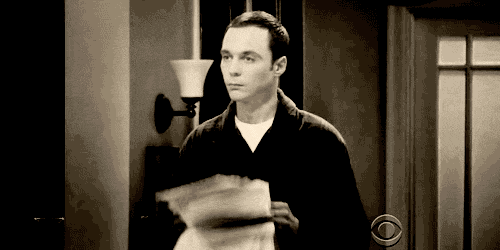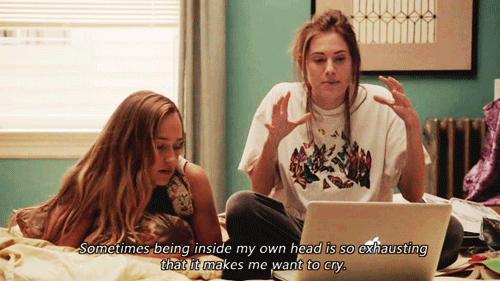Last Swoon Reads post
THURSDAY, MAY 29, 2014 0 CommentsThen they said, “Rachel, this is not a book”: A Guest Post by Author Rachel ToorRachel Toor
 They say you forget the pain of childbirth. I don’t know about that, having never grunted a human out of my woo-woo, but I will say that I haven’t forgotten the agony of writing my first book. All too well I remember what it was like to write a few pages and then have to take to my bed, the back of the hand across my forehead while I sighed like the heroine of a Gothic novel.My second book was worse. I’d sweat out a chapter, send it to my agent, and then in less time than it takes to do the dishes she’d write back and say, “Not quite there, Rachel. Try again?”I said things to her in my head that I would never utter aloud, even in the presence of my dog. Then I’d take a deep breath and start with a new blank document. The new version was always better than what I’d sent her.The third book was supposed to be a breeze: a collection of previously published essays. After I’d gotten the manuscript together I asked a group of undergraduates in one of my creative writing classes if they wanted to give me editorial input. They wouldn’t earn any extra credit, but I’d mention their names in the acknowledgments. I figured it would make them feel important and that they’d see what a great writer their teacher was.They came to my house, these four smart girls in their early twenties, and I tried to make them nachos, but since I don’t use my oven for anything other than storing old newspapers, they had to take over before I burned the place down. We chatted and gossiped and then I readied myself for gushes of praise and love.Instead, they looked serious and concerned and finally one of them said, “Rachel, this is not a book. It’s just a random collection of essays. We think you should do what you always tell us to do when we go to revise a draft: start with a blank document and try again.”
They say you forget the pain of childbirth. I don’t know about that, having never grunted a human out of my woo-woo, but I will say that I haven’t forgotten the agony of writing my first book. All too well I remember what it was like to write a few pages and then have to take to my bed, the back of the hand across my forehead while I sighed like the heroine of a Gothic novel.My second book was worse. I’d sweat out a chapter, send it to my agent, and then in less time than it takes to do the dishes she’d write back and say, “Not quite there, Rachel. Try again?”I said things to her in my head that I would never utter aloud, even in the presence of my dog. Then I’d take a deep breath and start with a new blank document. The new version was always better than what I’d sent her.The third book was supposed to be a breeze: a collection of previously published essays. After I’d gotten the manuscript together I asked a group of undergraduates in one of my creative writing classes if they wanted to give me editorial input. They wouldn’t earn any extra credit, but I’d mention their names in the acknowledgments. I figured it would make them feel important and that they’d see what a great writer their teacher was.They came to my house, these four smart girls in their early twenties, and I tried to make them nachos, but since I don’t use my oven for anything other than storing old newspapers, they had to take over before I burned the place down. We chatted and gossiped and then I readied myself for gushes of praise and love.Instead, they looked serious and concerned and finally one of them said, “Rachel, this is not a book. It’s just a random collection of essays. We think you should do what you always tell us to do when we go to revise a draft: start with a blank document and try again.” What?Who did these people think they were?I had a contract for exactly what I’d done. They just didn’t understand how publishing works. They were babies, whippersnappers.After two minutes and thirty-seven seconds of feeling defensive I realized how right they were, and was proud of how well they’d learned.I started over and actually wrote a book. Let me tell you, that process sucked. But every moment, as I struggled to wrangle words onto the page, I thanked Ivory, Robin, Erica, and Mikita.Even though I spend a lot of time complaining about how hard it is to write, these days, like most people who have been published, I now feel confident that I know the secret to success: Getting the butt in the chair.Each morning, often without brushing my hair and usually without bothering to put on makeup or clean clothes, I show up at a coffee shop where the baristas know my name. They pour me the first of my many cups of decaf and I settle at “my” table for three hours. Sometimes writing happens. Sometimes it’s in the form of emails to friends. Sometimes it’s typing “Lucchese cowboy boots on super-sale” into a search engine or clicking “Like” on the posts of 127 Facebook friends.
What?Who did these people think they were?I had a contract for exactly what I’d done. They just didn’t understand how publishing works. They were babies, whippersnappers.After two minutes and thirty-seven seconds of feeling defensive I realized how right they were, and was proud of how well they’d learned.I started over and actually wrote a book. Let me tell you, that process sucked. But every moment, as I struggled to wrangle words onto the page, I thanked Ivory, Robin, Erica, and Mikita.Even though I spend a lot of time complaining about how hard it is to write, these days, like most people who have been published, I now feel confident that I know the secret to success: Getting the butt in the chair.Each morning, often without brushing my hair and usually without bothering to put on makeup or clean clothes, I show up at a coffee shop where the baristas know my name. They pour me the first of my many cups of decaf and I settle at “my” table for three hours. Sometimes writing happens. Sometimes it’s in the form of emails to friends. Sometimes it’s typing “Lucchese cowboy boots on super-sale” into a search engine or clicking “Like” on the posts of 127 Facebook friends. Eventually I’ll open a new document, write a title (probably a bad one, but something to get me going) and embark on a first draft of a column that’s due in three months. When I get stuck, I’ll open a document that’s been around for a while and pick away at it. Adding sentences, fixing sentences, cutting lard, fixing more sentences, realizing it doesn’t have an ending. Realizing it’s boring and self-indulgent. Like that. A lot of time I stare into space. When I get going, I suspect my lips move as I write. I’m pretty sure I look like a crazy person.This, friends, is the glamorous life of a writer.George Orwell, a literary hero of mine, wrote, “Writing a book is a horrible, exhausting struggle, like a long bout of some painful illness.”Amen, brother George.Even though I found that writing fiction is more like playing with your imaginary friends than slogging through the vexing emotional archeology required of memoir, it’s still, let’s not kid ourselves, about as easy as fitting a refrigerator into the backseat of your car. I had to write the first fifty pages of my novel four different times to learn who my characters were and what they wanted. That meant starting with a blank document four times—two hundred pages of scrapped text. I’ve learned be okay scrapping text. It’s work that pays off, even if those words never see print. I’ve learned to bitch-slap the perfectionist in my brain and let my imagination party down and get messy.Most of my students like or love to write, and all of them want to be published. They think publishing will bring them riches and fame and happiness and puppies and lollipops and that once it happens, writing the next thing will be easy. I listen to them and think they’re like the people who believe that as soon as you get married you no longer have to work on the relationship. The truth is, at least for me, it’s always a struggle. You may learn some tricks and figure out your own bad habits but usually, you’re just sitting there on your sore butt with your unwashed hair and coffee breath, moving your lips in time with your fingertips, wishing you were somewhere else.
Eventually I’ll open a new document, write a title (probably a bad one, but something to get me going) and embark on a first draft of a column that’s due in three months. When I get stuck, I’ll open a document that’s been around for a while and pick away at it. Adding sentences, fixing sentences, cutting lard, fixing more sentences, realizing it doesn’t have an ending. Realizing it’s boring and self-indulgent. Like that. A lot of time I stare into space. When I get going, I suspect my lips move as I write. I’m pretty sure I look like a crazy person.This, friends, is the glamorous life of a writer.George Orwell, a literary hero of mine, wrote, “Writing a book is a horrible, exhausting struggle, like a long bout of some painful illness.”Amen, brother George.Even though I found that writing fiction is more like playing with your imaginary friends than slogging through the vexing emotional archeology required of memoir, it’s still, let’s not kid ourselves, about as easy as fitting a refrigerator into the backseat of your car. I had to write the first fifty pages of my novel four different times to learn who my characters were and what they wanted. That meant starting with a blank document four times—two hundred pages of scrapped text. I’ve learned be okay scrapping text. It’s work that pays off, even if those words never see print. I’ve learned to bitch-slap the perfectionist in my brain and let my imagination party down and get messy.Most of my students like or love to write, and all of them want to be published. They think publishing will bring them riches and fame and happiness and puppies and lollipops and that once it happens, writing the next thing will be easy. I listen to them and think they’re like the people who believe that as soon as you get married you no longer have to work on the relationship. The truth is, at least for me, it’s always a struggle. You may learn some tricks and figure out your own bad habits but usually, you’re just sitting there on your sore butt with your unwashed hair and coffee breath, moving your lips in time with your fingertips, wishing you were somewhere else. Don’t get me wrong. Writing can be a hoot, especially when things start to come together. Connections that you didn’t see are suddenly there on the page. Your characters become real to you and you are sad when they don’t get what they want and so proud of them when they do. Here’s an embarrassing admission: I cry when I read the end of my own novel. I get so moved by the growth of my main character that it’s like I didn’t think her up or write her story.But I did. I really did. When you’ve gotten a piece of writing as far as you can take it, when you’ve written and rewritten, cut and scrapped and fleshed out, you have something. You can hold it in your heart (even if it’s an published manuscript, a document on a computer) and say: I made this. Out of nothing came this, a brave new world, filled with wondrous creatures. Yes, it’s a god-like rush. Then you find a sentence that clunks and clanks and you no longer feel like you belong on Mt. Olympus.After Orwell commented on the illness-like state of writing a book, he went on to explain, “One would never undertake such a thing if one were not driven on by some demon whom one can neither resist nor understand.” And that’s really it. We write because we’re writers. It’s not easy, but it’s what we do and the rewards go far beyond a publishing contract or good reviews or the attention of people we admire and respect. It’s about expressing something in ourselves that we didn’t even know was there. Write on, friends.
Don’t get me wrong. Writing can be a hoot, especially when things start to come together. Connections that you didn’t see are suddenly there on the page. Your characters become real to you and you are sad when they don’t get what they want and so proud of them when they do. Here’s an embarrassing admission: I cry when I read the end of my own novel. I get so moved by the growth of my main character that it’s like I didn’t think her up or write her story.But I did. I really did. When you’ve gotten a piece of writing as far as you can take it, when you’ve written and rewritten, cut and scrapped and fleshed out, you have something. You can hold it in your heart (even if it’s an published manuscript, a document on a computer) and say: I made this. Out of nothing came this, a brave new world, filled with wondrous creatures. Yes, it’s a god-like rush. Then you find a sentence that clunks and clanks and you no longer feel like you belong on Mt. Olympus.After Orwell commented on the illness-like state of writing a book, he went on to explain, “One would never undertake such a thing if one were not driven on by some demon whom one can neither resist nor understand.” And that’s really it. We write because we’re writers. It’s not easy, but it’s what we do and the rewards go far beyond a publishing contract or good reviews or the attention of people we admire and respect. It’s about expressing something in ourselves that we didn’t even know was there. Write on, friends.
Rachel Toor is an associate professor of Creative Writing at Eastern Washington University and the author of three nonfiction books. Farrar, Straus and Giroux will publish her first Young Adult novel, On the Road to Find Out, in June 2014. Rachel lives with her dog, Helen, who raced in her first half marathon this February. She was 4th dog (out of 42).Visit her online at http://racheltoor.com.
Published on May 30, 2014 09:45
No comments have been added yet.



